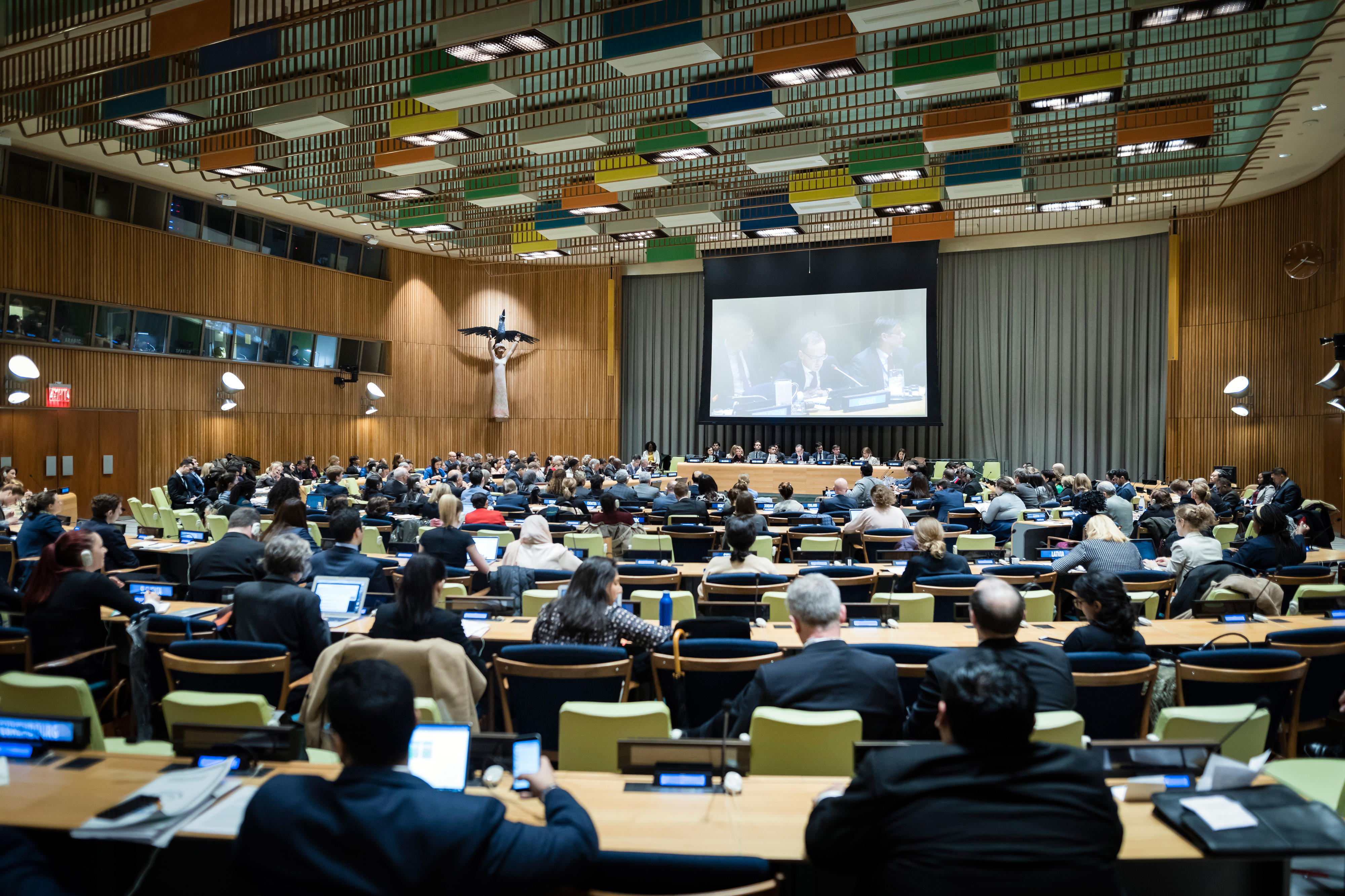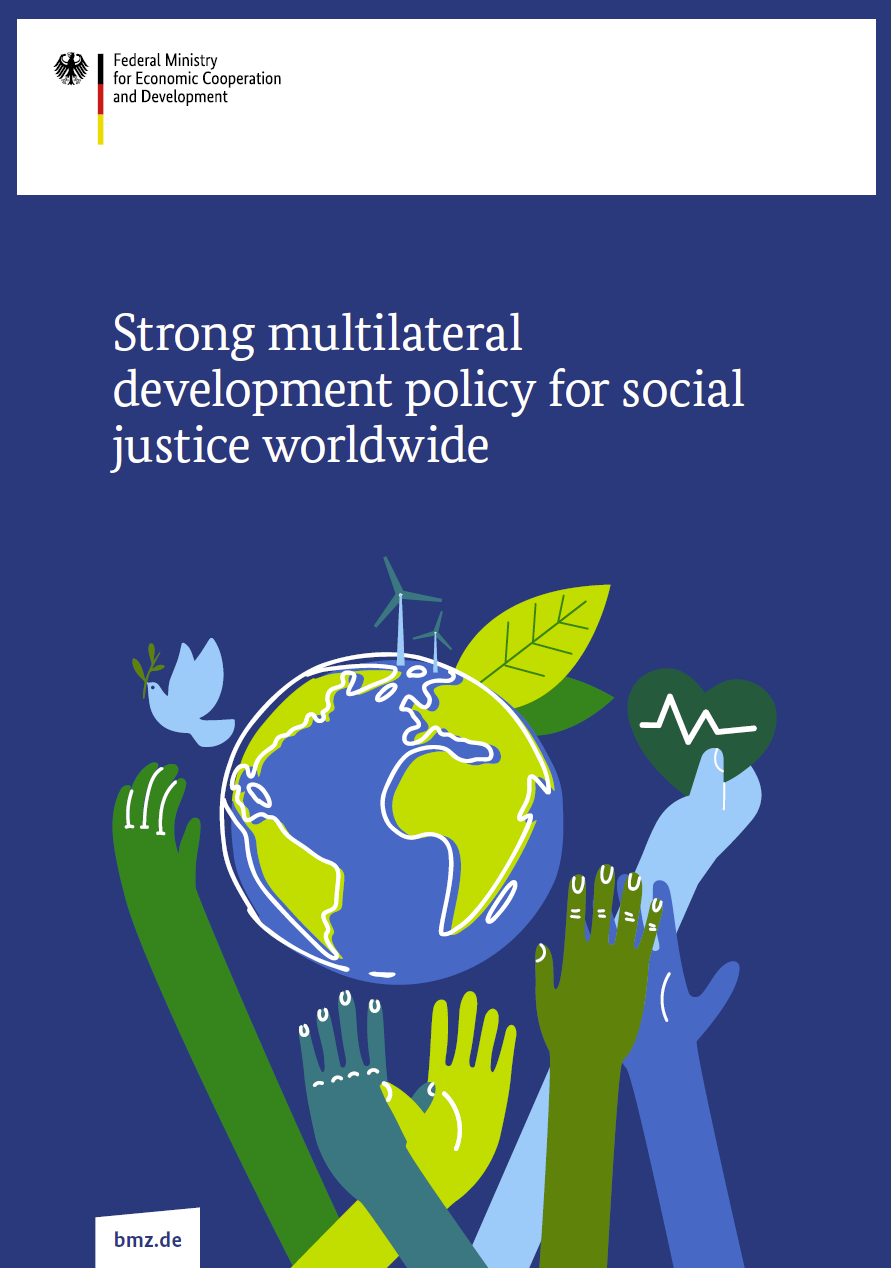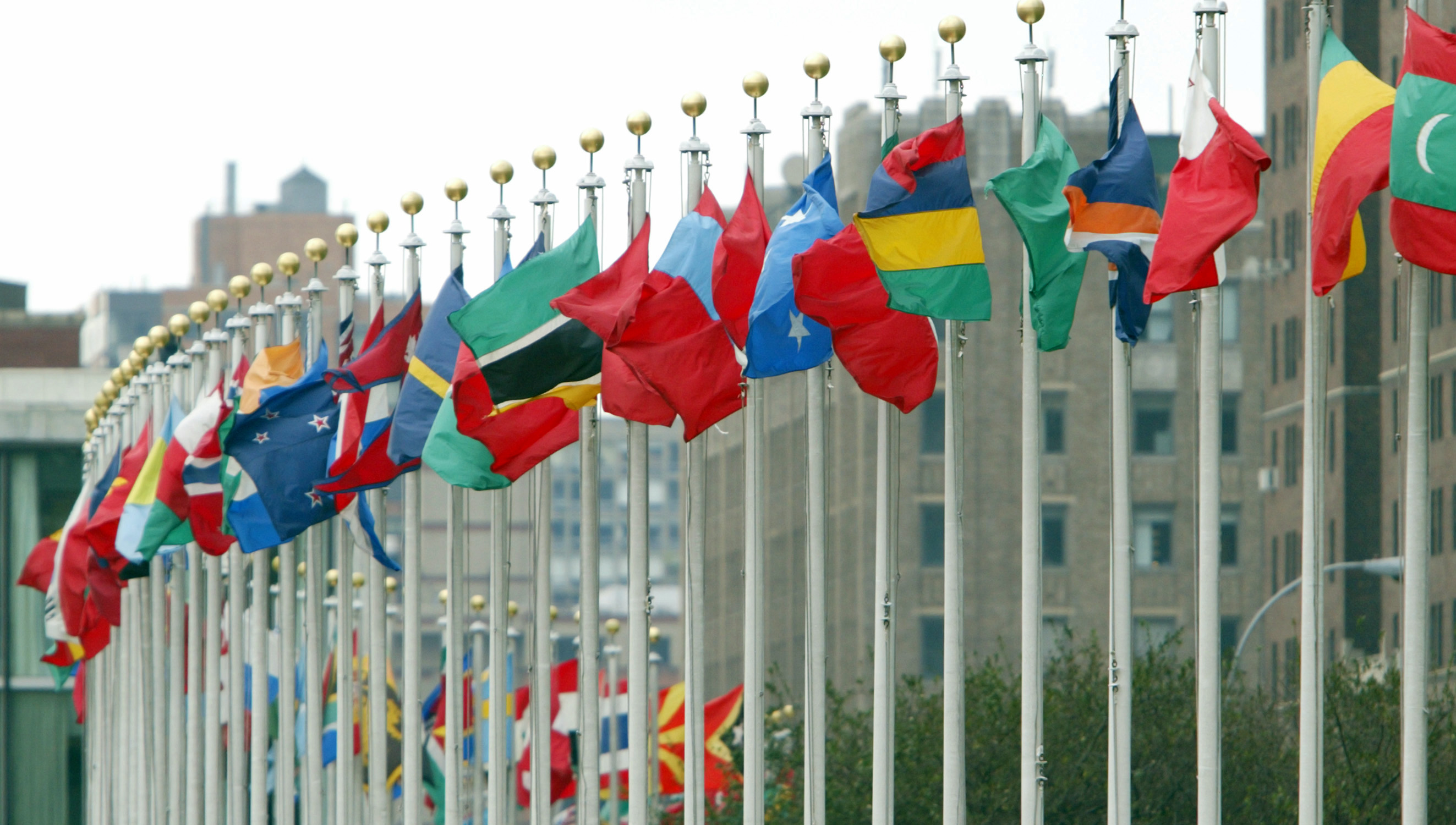Meeting room in the United Nations building in New York
Copyright© Xander Heinl/photothek.net
Multilateral cooperation Working on joint solutions to cross-border issues
For development policy to be globally successful and grounded in trust, it is vital to have multilateral organisations that are both strong and effective. It is there that the countries of the world convene to discuss and negotiate, in an effort to resolve conflicts peacefully and achieve a fair balance of interests. These organisations offer a platform to debate fundamental development policy issues and agree on international standards with regard to economic, environmental and social policy.
Multilateral institutions play a major role in coordinating and implementing development cooperation in partner countries. They realise ambitious programmes and also support partner countries in developing their own capacities to tackle matters such as climate, health, social protection and financial management. They complement the work of the various donors and, in this way, lend it greater impact. As international financial institutions, multilateral development banks mobilise private capital for development, set up funds and offer concessional loans to countries with little or no means of borrowing at market conditions.
Through its membership of international organisations and its many partnerships with government and non-government players, Germany is able to articulate its positions to the international community. As a major economy, Germany is one of the main providers of funding for official development cooperation. That gives it a special degree of influence in the field of development.
The BMZ’s multilateral strategy
In 2023 the Federal Ministry for Economic Cooperation and Development (BMZ) published its new multilateral development policy strategy. It outlines how the BMZ aims to reform the structures of international cooperation and create a system that fosters greater social justice worldwide.
Efforts are to focus even more on the provision of global public goods (like peace, climate, environment and health) and on establishing and developing social protection systems. True to the 2030 Agenda’s ambition to “leave no one behind”, the BMZ wants to help make societies more resilient, more just, safer and, as a result, more liveable.
That is why it is strengthening its cooperation with partners who share the same key values, like freedom, democracy, the rule of law and human rights. Together with the European Union and its member states, Germany is focused in particular on strengthening the countries of the Global South as strong and effective partners in development cooperation. At the same time, the BMZ is also taking a more flexible approach than before to forging alliances with other government and non-government partners. The aim is to equip us better to respond adequately to global challenges. One example is the BMZ’s involvement in the Global Shield against Climate Risks. The initiative was officially launched in 2022 at COP27, the UN Climate Change Conference, with the aim of better protecting poor and vulnerable people and countries from the risks climate change.
Aims and focuses
Working with multilateral partners allows Germany to be even more effective in pursuing its development policy goals and focuses.
They include:
- reducing hunger, malnutrition, poverty and inequality
- achieving a just transition
- global health and bodily autonomy
- gender equality and feminist development policy
- resilience and a development-oriented approach in situations of crisis and contexts of displacement and migration
- just digital transition.
Partners
Germany is a member of many multilateral organisations and fora and is also engaged in a large number of strategic networks and alliances. The Development Ministry often takes on the role of mediating in and coordinating international processes; it takes on a bridging function in relation to the Global South in a shifting geopolitical landscape. Germany’s most important partners in development policy include the European Union, the United Nations development system and the multilateral development banks. Of growing importance is also its involvement in informal fora with the power to shape the political agenda and instigate political processes, particularly the G7 and the G20. The BMZ is actively committed to structural reform, for example the reform of the World Bank, in order to better equip the multilateral system for present-day challenges and to make it more efficient.
As at: 15/09/2023


